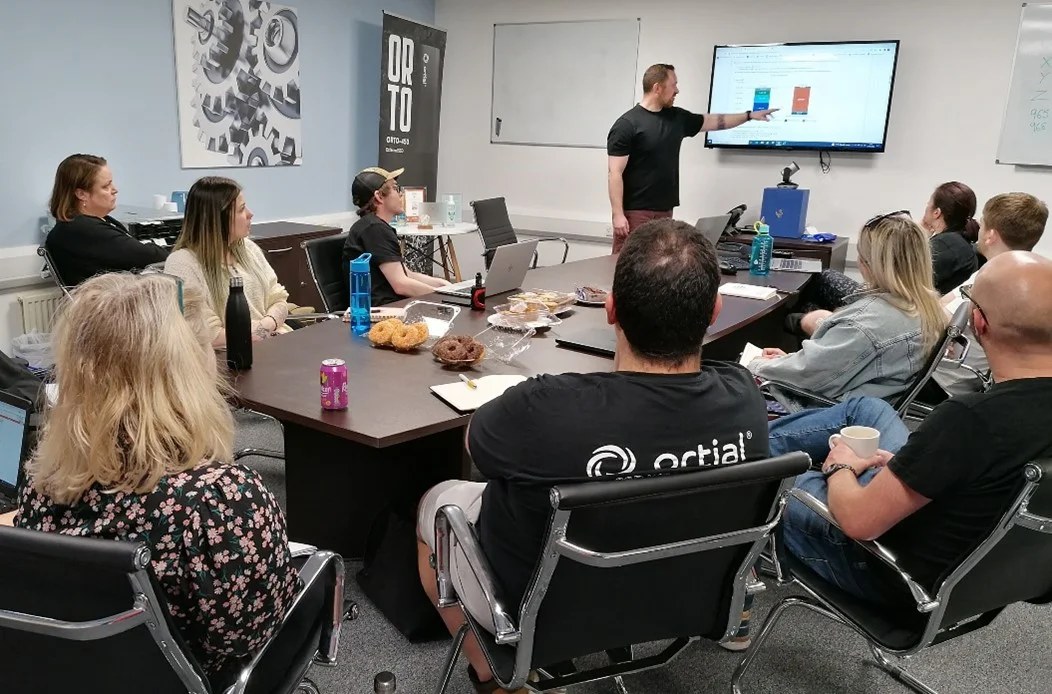The importance of training and why we do it
Rich Kenny | June 30, 2022

Another piece of our sustainability strategy falls into place as member of the senior team and Chartered Environmentalist Astrid Wynne Rogers starts delivering IEMA-accredited sustainability training courses from this month. For those not familiar with IEMA, (The Institute of Environmental Management and Assessment), it is the professional body for everyone working in environment and sustainability. The IEMA’s goal is to equip those individuals with the knowledge, competencies, skills and confidence to do a professional job.
As Astrid explains, “Partnering with the IEMA has enabled us to continue doing what we love doing: to inspire and educate people around environment and sustainability issues. It also helps us build a community of like-minded individuals and organisations with environmental goals aligned to ours which is really important when you trying to push the agenda forward in a new area.”
One of the key benefits to us of providing sustainability courses in partnership with the IEMA is that it enables us to deliver training courses that are tailored specifically to support the needs of our clients and partners as well as society as a whole. Our team has worked hard on supplying additional information and structure into the IEMA course so that it includes more detail on the relatively new area of sustainable technology.
One of the overarching benefits of publishing several research papers and best practice documents is that these enhance our ability to effectively educate people around sustainability issues and, of course, this is a bedrock of our training.
Embedding sustainability within the fabric of Interact
Our first step is to embed sustainability into all job roles at Interact. To support that goal, every member of the team will complete the IEMA-accredited ‘Environmental Sustainability Skills for the Workplace’ as part of their professional development, gaining a thorough grounding in environmental best practices.
Our goal is for every team member to understand and uphold our sustainability values. Additionally, we are committed to putting the right skills in place to support the research-led sustainability technology solution that underlies Interact as a business.
We also recognise the importance of sustainability training in ensuring that, as a business, we adapt to new environmental legislation, minimise our impact on the environment and support effective environmental management systems. We do this because it keeps us abreast of the wider issues so that we can build better solutions for our customers.
Rolling out sustainability training across the industry
We will start delivering IEMA-accredited sustainability training courses to clients and partners from July 2022.
If you would like to upskill your team members in sustainability as part of their professional development and ensure your team are fully aligned with your environmental strategy, please ask us about our IEMA-accredited training courses.
IEMA training courses are not the only element in our training toolkit.
In June, Founder of Interact Richard Kenny presented to the Techbuyer reseller team on the specifics of Interact’s server comparison tool that allows you to compare the energy efficiency and performance of servers from multiple vendors, configurations, generations and types.
Explaining the benefits of server analysis and reporting, Rich is seen here equipping 18 members of the sales, business and technology teams with the information needed to add value to their customer service. The response from the reseller was fantastic. Product Director Ollie Charleton messaged us to say “Thank you to Rich Kenny & the Interact team for a truly insightful and engaging session. We are now able to enlighten our customers using years of benchmarking and machine learning data towards their decision in option for sustainable solutions. Having this incredible tool at our disposable allows us present a range options through multiple vendors and display those of the best value whilst have a better understanding of their impact on energy consumption, carbon footprint and overall costs throughout the product lifecycle.”
